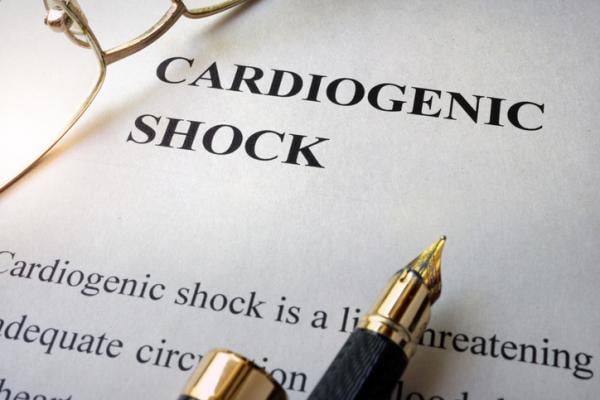
Getty Images
March 15, 2023 — Windtree Therapeutics, Inc, a biotechnology company focused on advancing late-stage interventions for cardiovascular disorders, is targeting cardiogenic shock as a potential indication for its drug candidate, istaroxime and today announces results of a recently completed market study.
Innovative therapeutic interventions have the potential to decrease the long length of hospital stay associated with cardiogenic shock and its resulting high cost to the health care system. US hospital claims data obtained by Windtree show that in 2020 the US average cardiogenic shock patient length of stay in the hospital was 19.6 days and the median was 10 days. The US average length of stay for any hospitalization was 5.5 days (NIH, Interventions To Decrease Hospital Length of Stay, 2018). Additionally, the resources required to take care of these patients are substantial, frequently requiring ICU or CCU care where costs are high. These patients are at risk to experience clinical worsening that can lead to greater morbidity and mortality. On top of the clinical development plan to demonstrate efficacy and safety in the treatment of cardiogenic shock, Windtree’s development program will also be assessing the potential pharmacoeconomic benefits that a successful therapy can bring in this area.
As previously reported, the SEISMiC Phase 2 study was an international, randomized, double blind, placebo-controlled study that enrolled 60 patients with Society for Cardiovascular Angiography & Interventions (SCAI) Stage B early cardiogenic shock due to severe heart failure with SBP between 75-90 mmHg. The primary endpoint was the difference in SBP area under the curve over six hours after initiating the infusion. The study met its primary endpoint in SBP profile over six hours, with the istaroxime treated group performing significantly better compared to the control group (p =0.017). The improvement persisted through the 24-hour SBP profile measurement, which was also statistically significant (p=0.025).
The Company conducted market research with 100 US based clinical cardiologists who treat cardiogenic shock patients to understand the unmet need. The study revealed that 99% of US Cardiologists surveyed said there is a high need for drug treatment innovation to treat cardiogenic shock patients. When shown a blinded profile of istaroxime, the same cardiologists were asked how likely they would be to use the drug to treat their cardiogenic shock patients and 84% said they would be highly likely or likely to prescribe istaroxime for their patients. The Company considered the market research results encouraging.
“It is not common to see such a high unmet medical need, desirable market value and no competitive drug development,” said Craig Fraser, CEO and President of Windtree Therapeutics. “Additionally, we are encouraged by the positive results of istaroxime’s Phase 2 study in early cardiogenic shock that built upon previous positive results in acute heart failure and demonstrated a unique and attractive therapeutic profile. We believe that istaroxime has the therapeutic effect needed to navigate late-stage development and hopefully address the significant and critical needs of patients in cardiogenic shock. Given the relatively attractive cost and timing of development and, if approved, commercialization by a relatively small team, the program fits well with Windtree’s strategy. We look forward to keeping investors updated on our clinical development progress.”
The Company conducted further research to determine the cardiogenic shock worldwide total market value and estimates it to be $1.25 billion, calculated by using cardiogenic shock patient US hospital claims and worldwide prevalence data multiplied by assumed various regional prices of drug treatment. To the Company’s knowledge, there are no other drug candidates in clinical development for cardiogenic shock at this time.
For more information: https://windtreetx.com/
Related Content:
Windtree Completes Enrollment of Phase 2 Study of Istaroxime in Early Cardiogenic Shock


 January 05, 2026
January 05, 2026 









